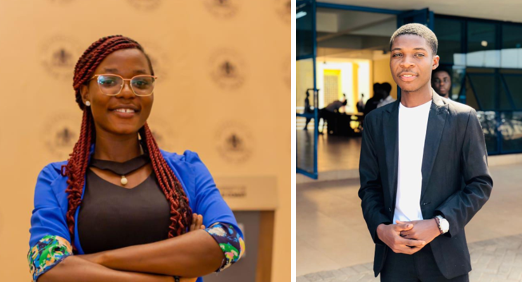By Gladys Opoku ANNING & Prince Asare NYARKO
Small and Medium Enterprises (SMEs) form the very bedrock of Ghana’s economic architecture.
From agro-processing plants in Bono to tech startups in Accra and bustling retail in Tamale, SMEs represent not only commerce but the living, breathing force of Ghana’s growth.
They account for over 90percent of businesses, engage about 80percent of the workforce, and contribute nearly 60percent to Ghana’s GDP.
But beneath these impressive numbers lies a deep structural vulnerability —a persistent financing gap that continues to restrain SME growth and economic transformation
Understanding Ghana’s SME landscape
Defined by the Ghana Statistical Service, small enterprises employ fewer than 10 people, while medium-sized ones scale up to 100 workers. The Ghana Enterprises Agency (GEA) caps SME asset value at GH¢10 million, excluding land and buildings.
Sectorally, Ghana’s SMEs are diverse: agriculture, manufacturing, retail, services, ICT, and tourism. Yet, the informal sector dominates — with 92percent of registered businesses classified as MSMEs.
Many operate without audited financial records, yet collectively, they contributed over GH¢156 billion (around 26percent of GDP) in 2022. However, despite this contribution, the traditional financial system has been largely unresponsive to the needs of these businesses.
The financial constraint – An unresolved bottleneck
Ghana’s SMEs face several barriers in accessing capital:
Prohibitively high interest rates — the interbank rate stood at 27.04percent as of December 2024.
Short loan tenors — typically under three years.
Rigid collateral demands.
Complex documentation that informal SMEs cannot meet.
According to the British International Investment Report (2024), only about half of Ghana’s SMEs have ever accessed formal credit. Even then, the terms have been too tight to allow significant expansion or productivity improvements.
Agricultural SMEs face a double burden with banks often hesitant due to the seasonality of incomes and exposure to climate-related risks. This under-served segment of the economy reflects a financing system out of sync with the country’s development aspirations.
The case for a financial paradigm shift
It is increasingly clear that the orthodox financial approach alone cannot unlock Ghana’s SME potential. What is required is an alternative financing architecture — one that aligns with the unique operating realities of SMEs.
Enter Islamic banking: a globally expanding financial model that offers not only an alternative, but a complementary system based on:
Prohibition of interest (riba).
Profit and loss sharing mechanisms.
Asset-backed and ethical investments.
Products like Murabaha (cost-plus financing), Ijara (leasing), and Mudarabah (partnership-based investments) align financing with business performance rather than rigid repayment schedules. This is particularly advantageous for SMEs in agriculture, retail, and manufacturing sectors prone to revenue seasonality and market volatility.
Globally, Islamic finance has hit a US$5 trillion asset base as of 2024, growing at 12percent annually. While concentrated in the Middle East and Asia, Africa is catching on — with Ethiopia, Uganda, and Malawi already integrating Islamic banks into their financial systems. Furthermore, countries like Russia and the Philippines — with no Muslim majority have piloted Islamic finance frameworks to deepen financial inclusion and diversify capital markets.
A strategic opportunity for Ghana
For Ghana, the opportunity is ripe. The Bank of Ghana, recognizing the imperative, is already taking exploratory steps to develop an enabling policy and regulatory framework for Islamic banking. This is not only timely but strategic — ensuring Ghana aligns with global financial diversification trends while addressing local developmental challenges.
As Prof. John Gatsi, Former Dean of the UCC School of Business, Now Advisor to Bank Of Ghana, emphasized: “Islamic finance presents a policy and ethical alternative for deepening financial inclusion, especially for SMEs and segments excluded by traditional finance. It is not just about religious compliance — it is about economic empowerment and national development.”
Looking forward – Building an inclusive financial architecture
Bridging the financing gap for Ghana’s SMEs is not just an economic necessity, it is a developmental imperative. Introducing Islamic banking can serve as a strategic lever for financial inclusion, economic resilience, and diversified capital markets.
Yet, its success hinges on strong institutional action:
A comprehensive regulatory framework from the Bank of Ghana to guide the licensing, supervision, and governance of Islamic financial institutions.
Stakeholder education to clarify misconceptions and promote ethical finance awareness.
Capacity-building across banks, MFIs, and fintech to design Shariah-compliant products.
Collaborative research and policy engagement between academia, industry, and regulators.
With the Central Bank’s ongoing efforts to lay the policy groundwork, the prospect of a robust Islamic banking sector in Ghana is no longer a distant vision — it is an emerging reality. In embracing Islamic banking, Ghana can redefine its financial landscape — ensuring that finance becomes not just a tool for profit, but a vehicle for shared growth, ethical enterprise, and national prosperity.
Editor’s note: This article is the first in a two-part series exploring Islamic Banking and SME Growth in Ghana. In Part 2, we dive deep into the practical Islamic financing models and strategic pathways for Ghana’s financial sector diversified.
Gladys Opoku Anning is not just a public speaker, she’s a voice for change. As a dynamic corporate host and financial literacy advocate, she blends business intelligence with human insight to drive transformation. She doesn’t just speak, she connects, builds, and ignites. In every space she steps into, she sparks clarity, challenges thinking, and leaves people better than she found them. With a deep passion for empowering others, Gladys fosters growth, instils confidence, and creates lasting impact through every initiative she leads. She can be reached via +233 544 544 301 and or [email protected], linkedin.com/in/gladys-opoku-anning
Prince Nyarko Asare is a finance graduate and Teaching and Research Assistant at the University of Cape Coast, driven by a strong passion for investment, portfolio optimization, and alternative finance. I am committed to producing impactful research and advancing practical financial solutions that support growth and innovation in the finance industry. He can be reached via 0592509451 and or [email protected], https://www.linkedin.com/in/asare-nyarko-prince-2a6090236/
Post Views: 696
